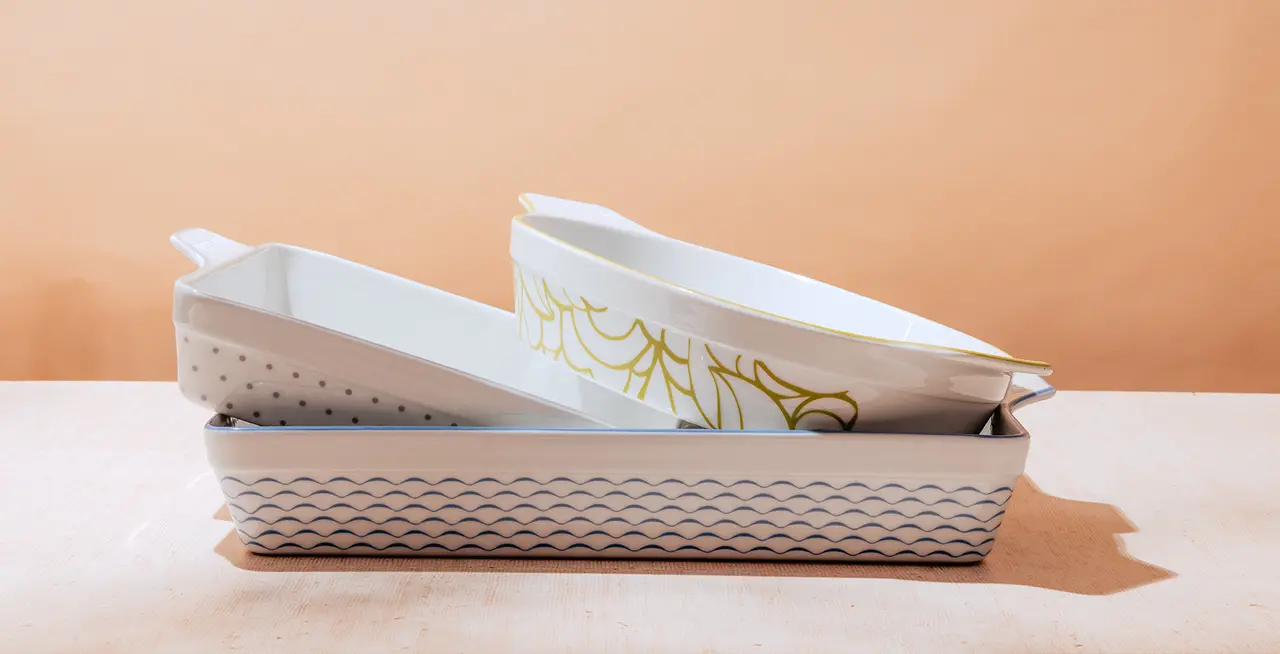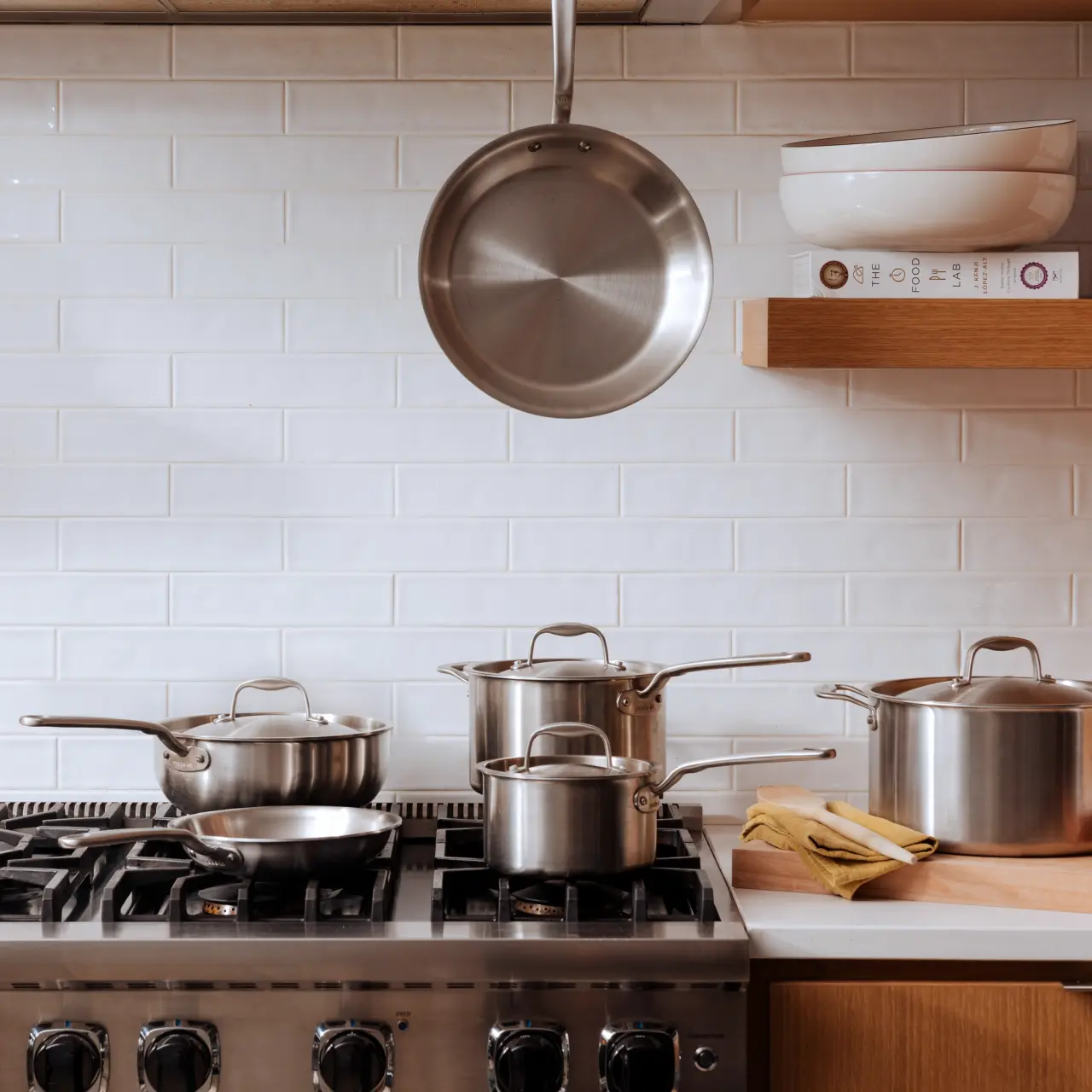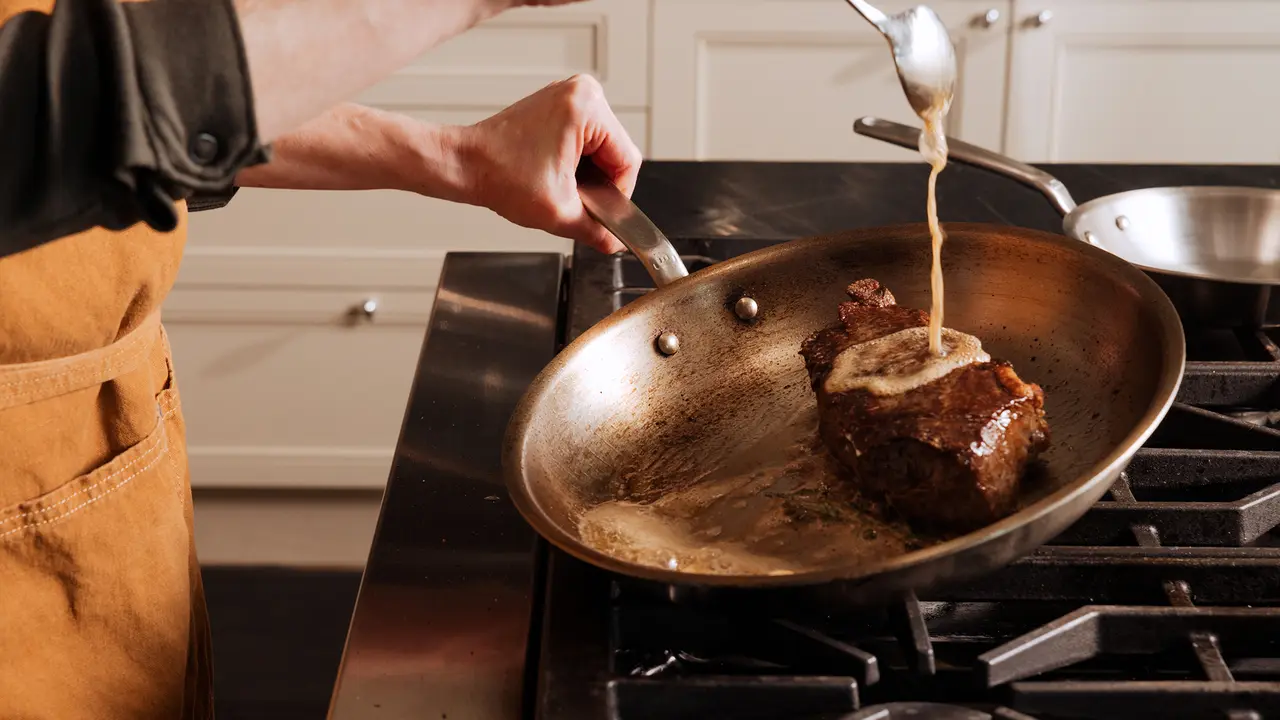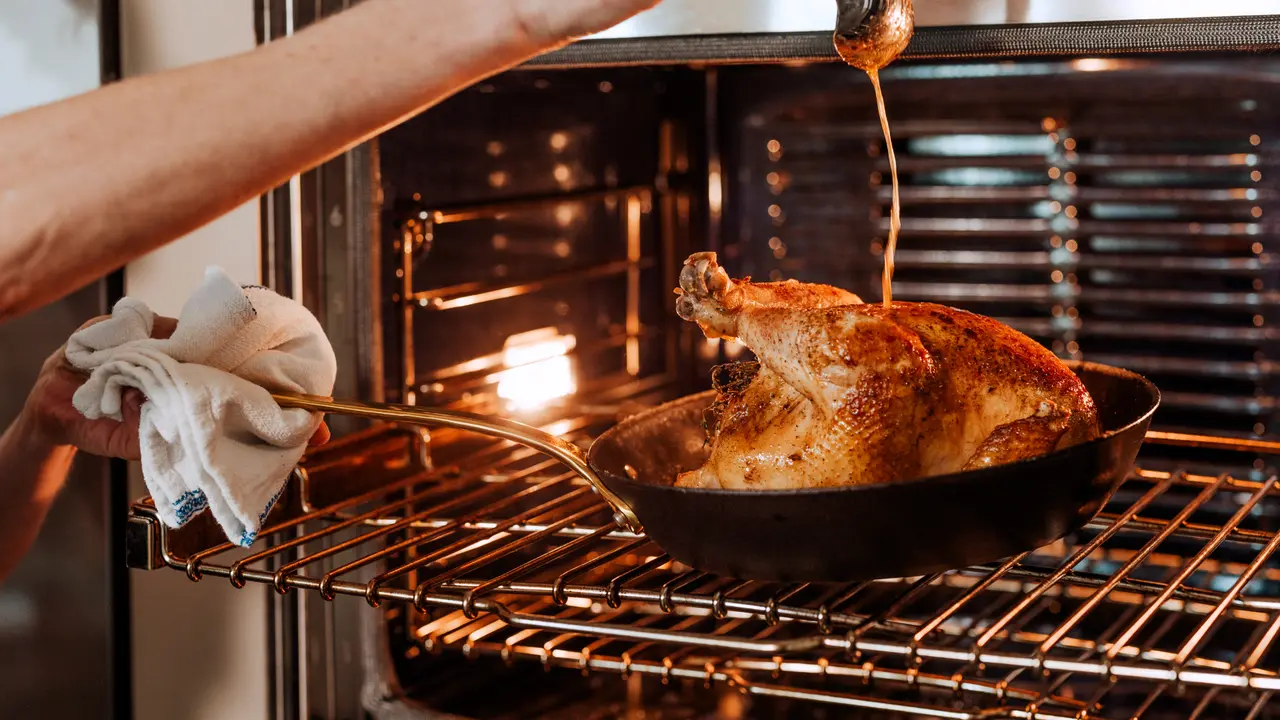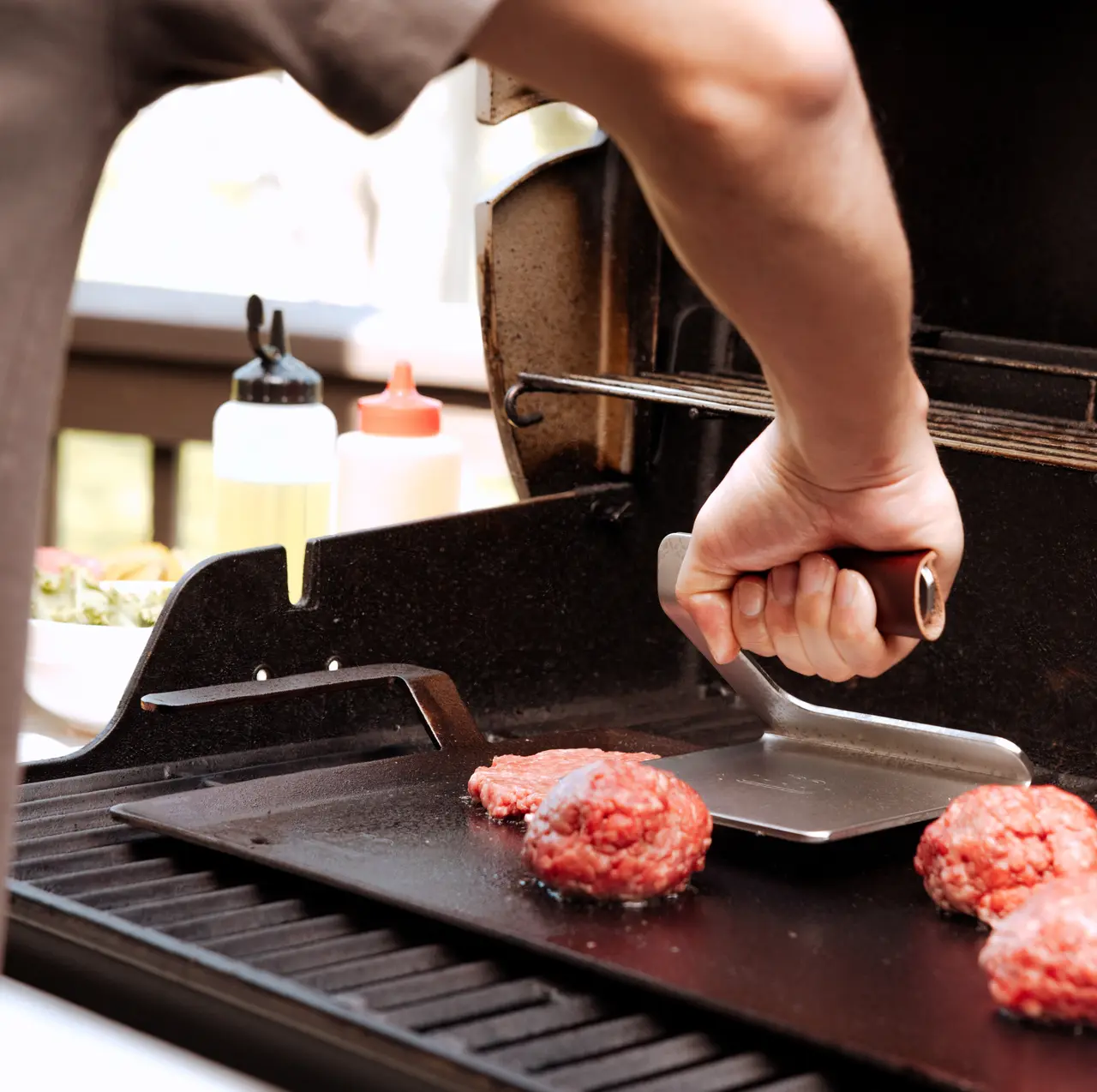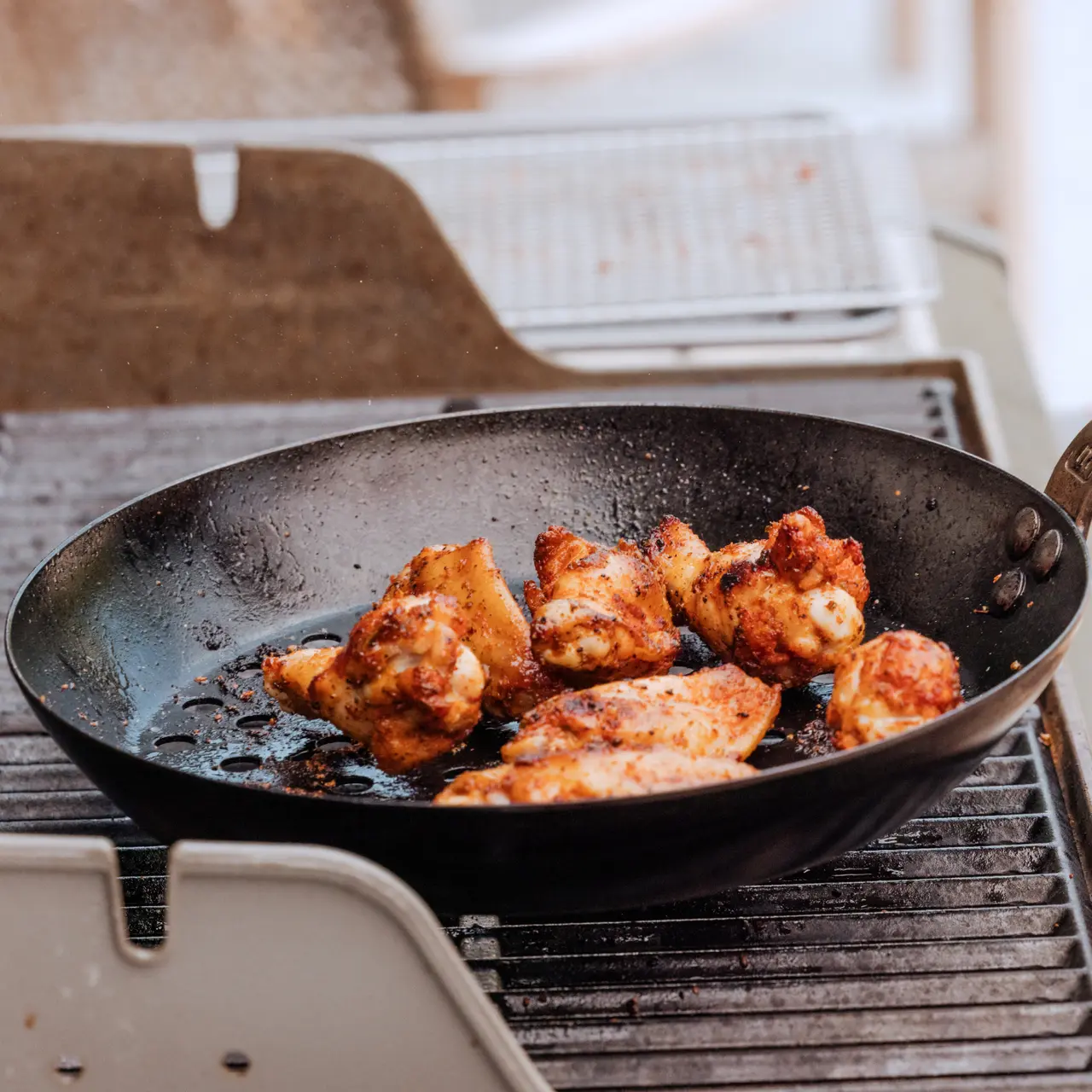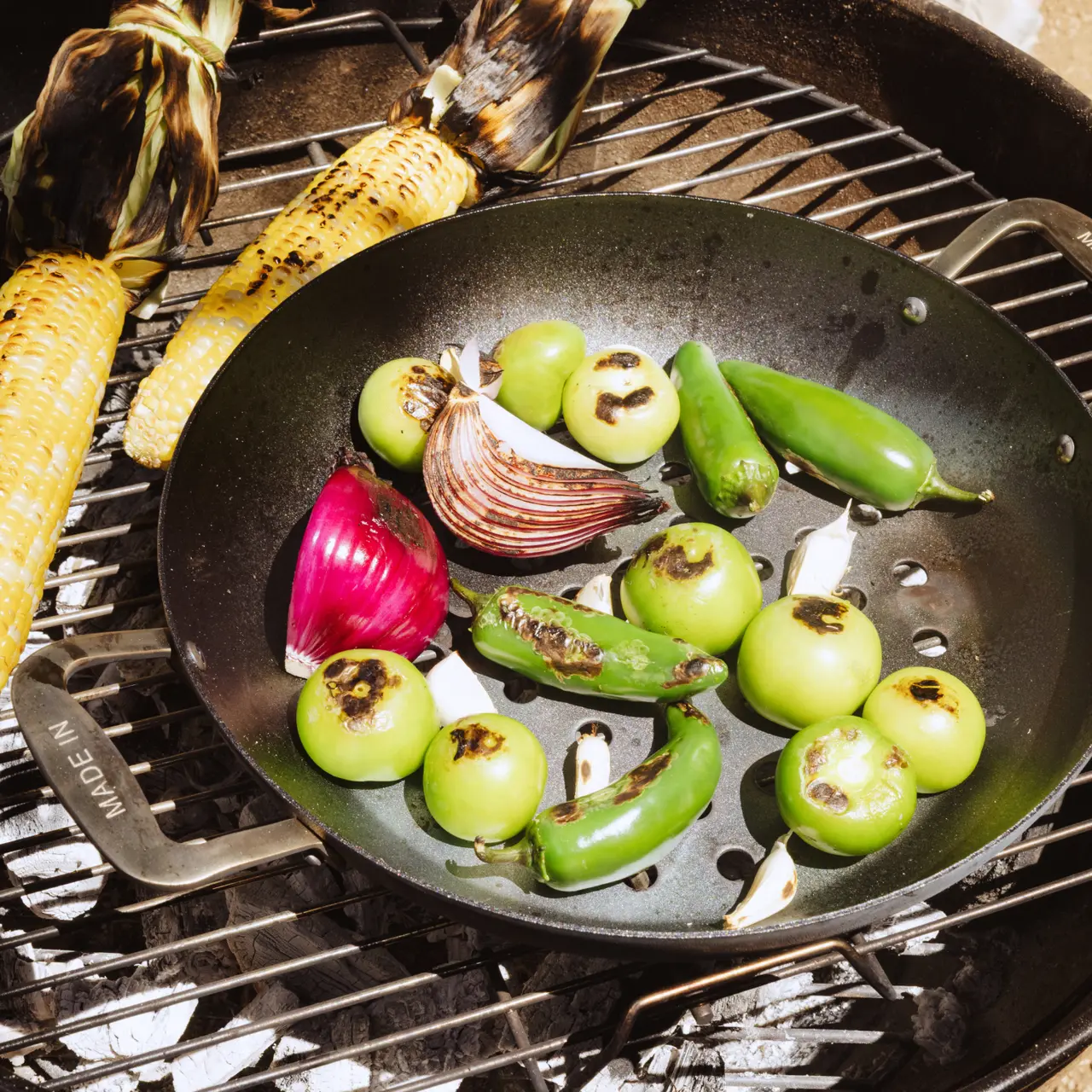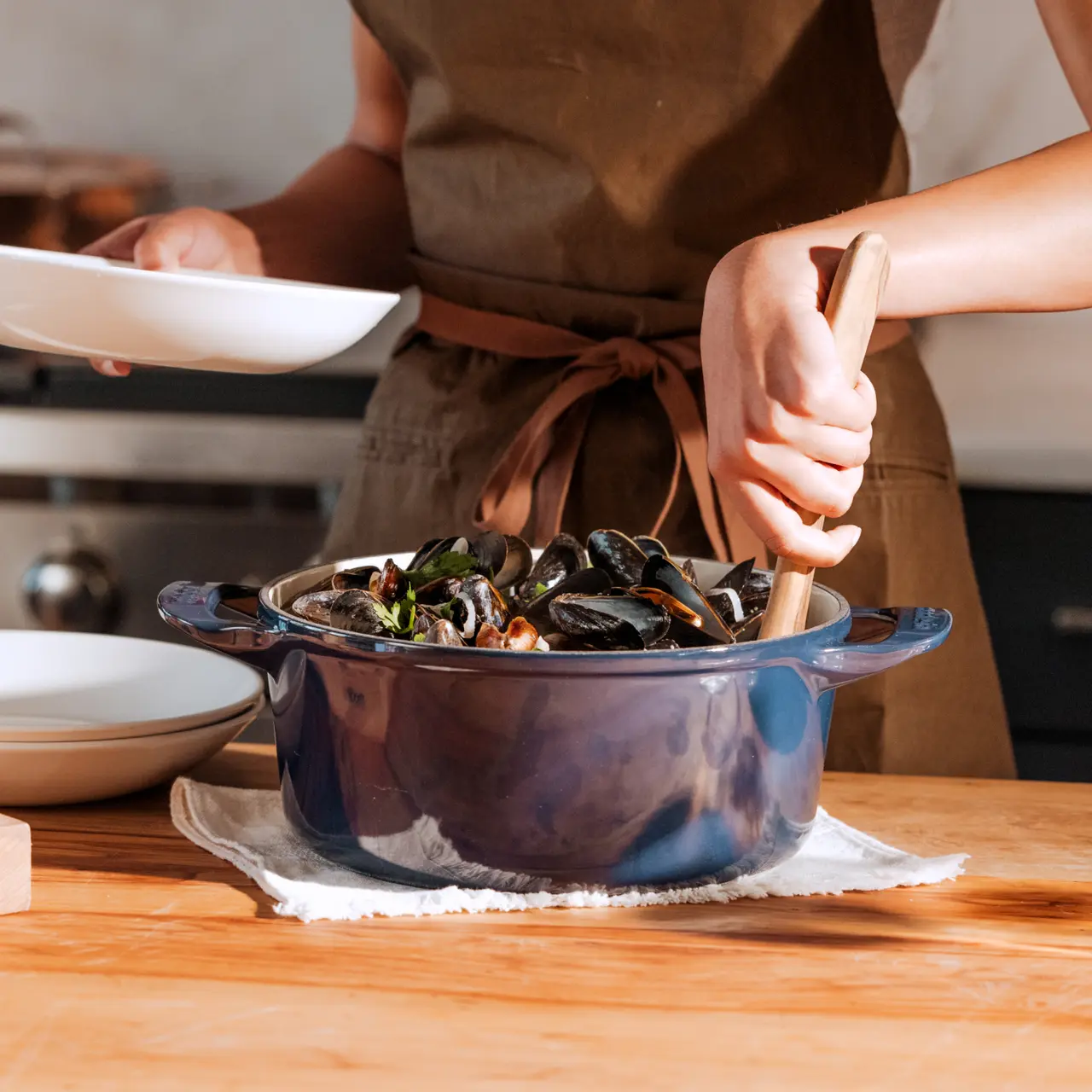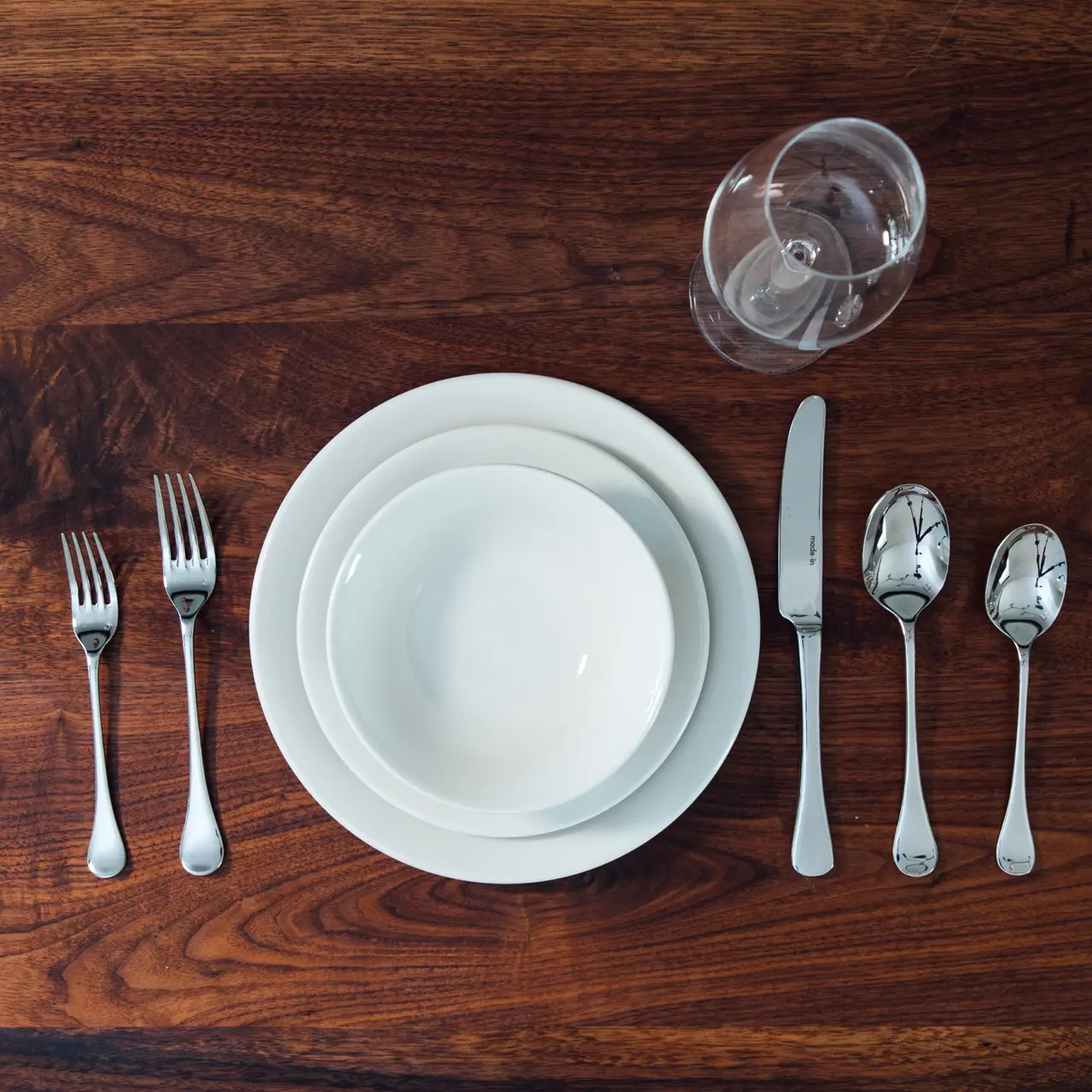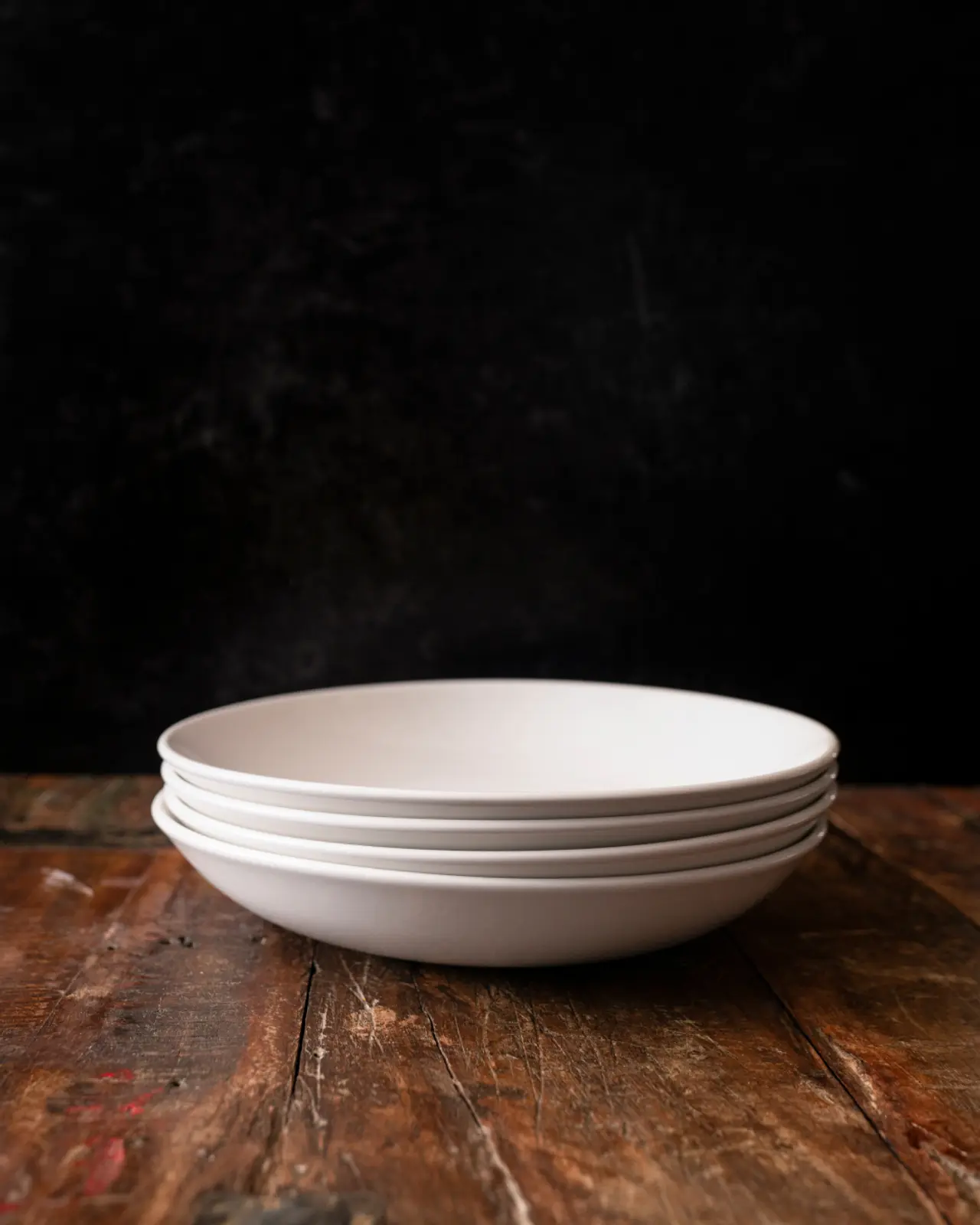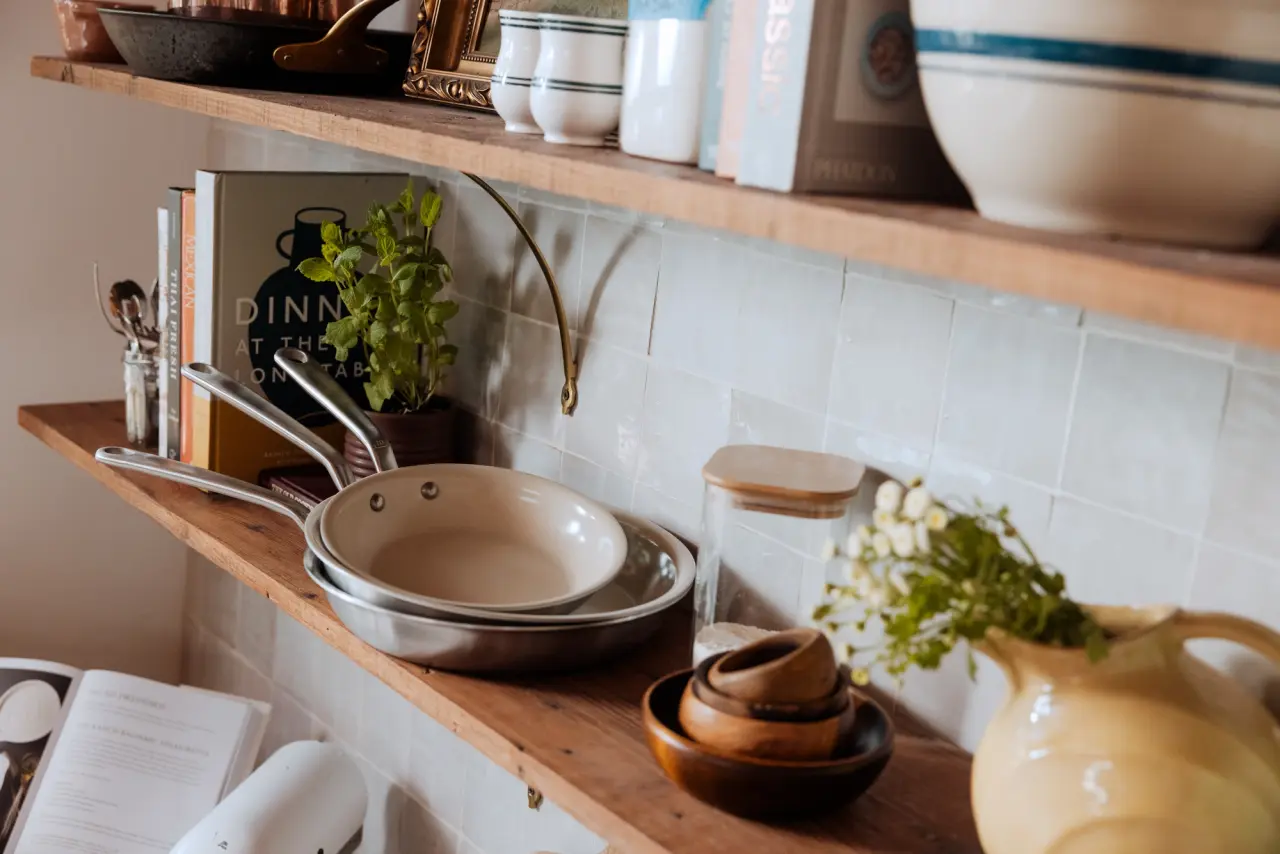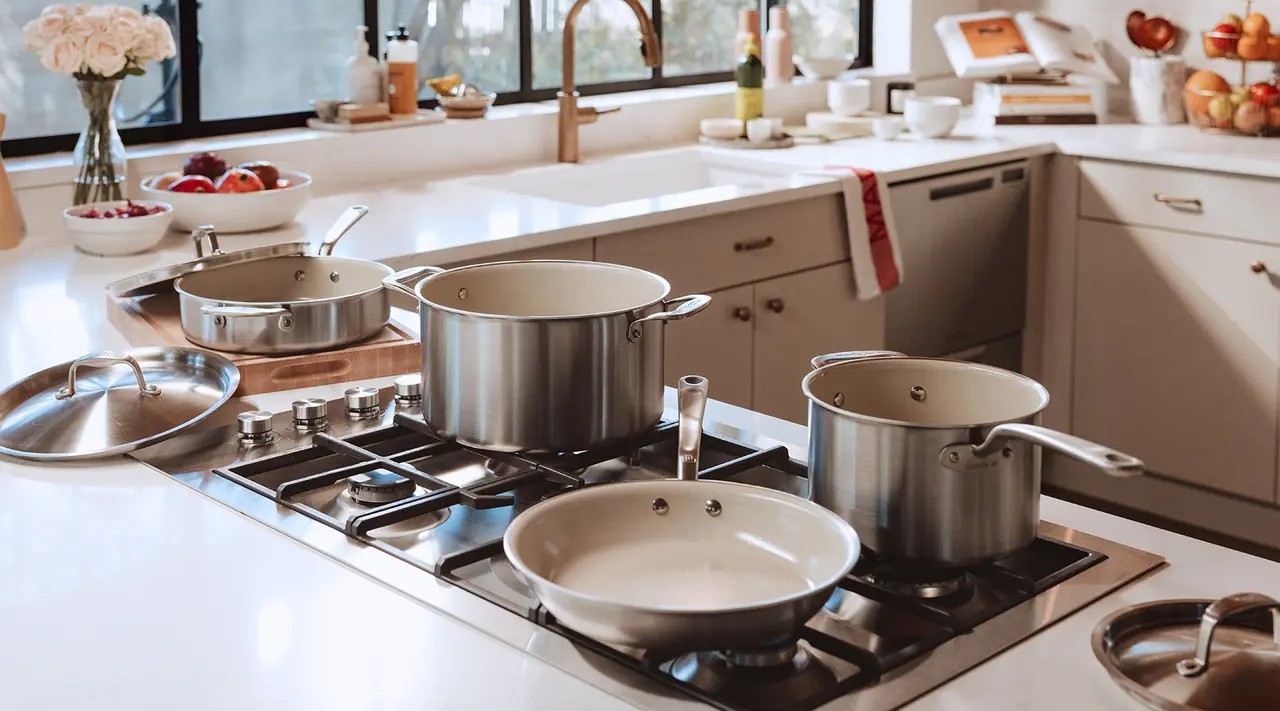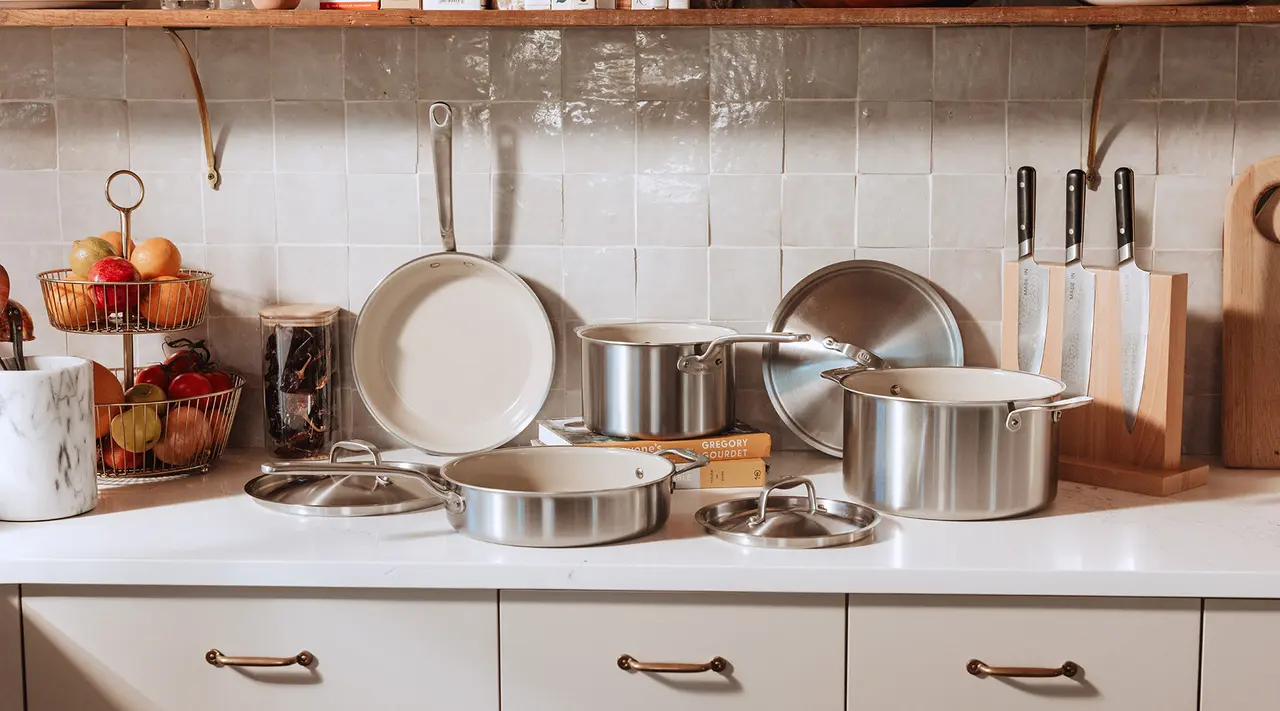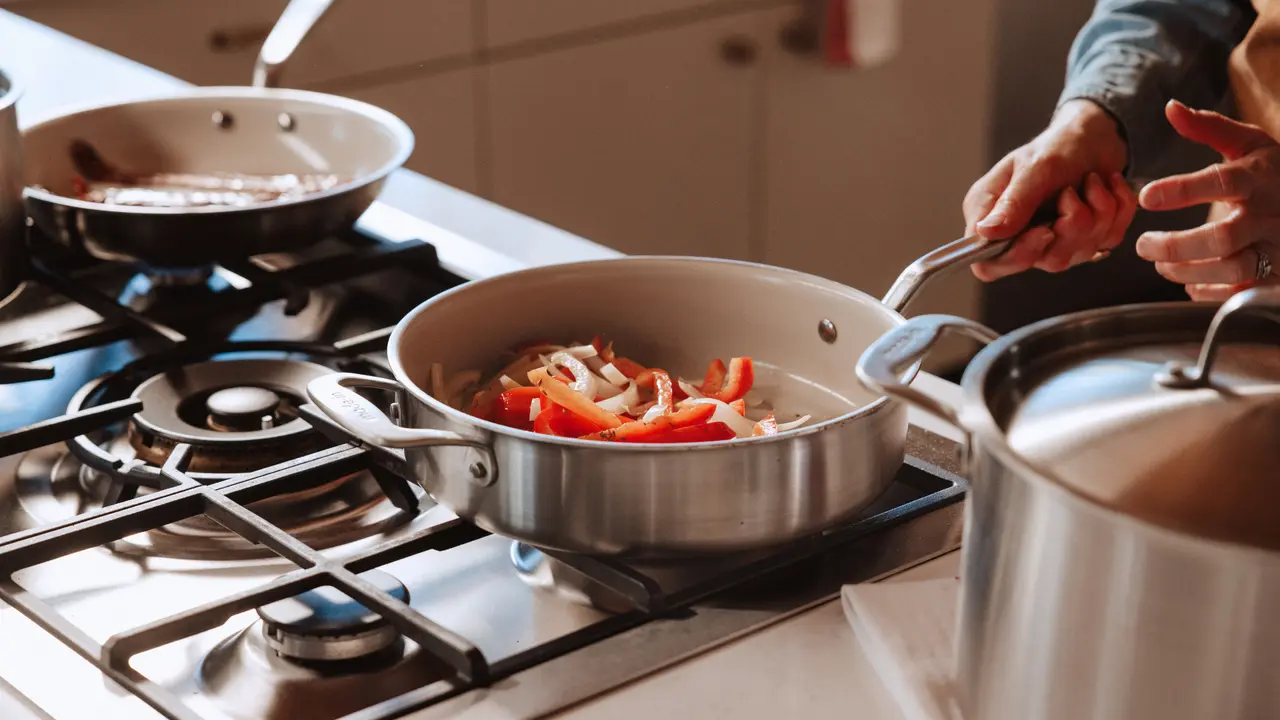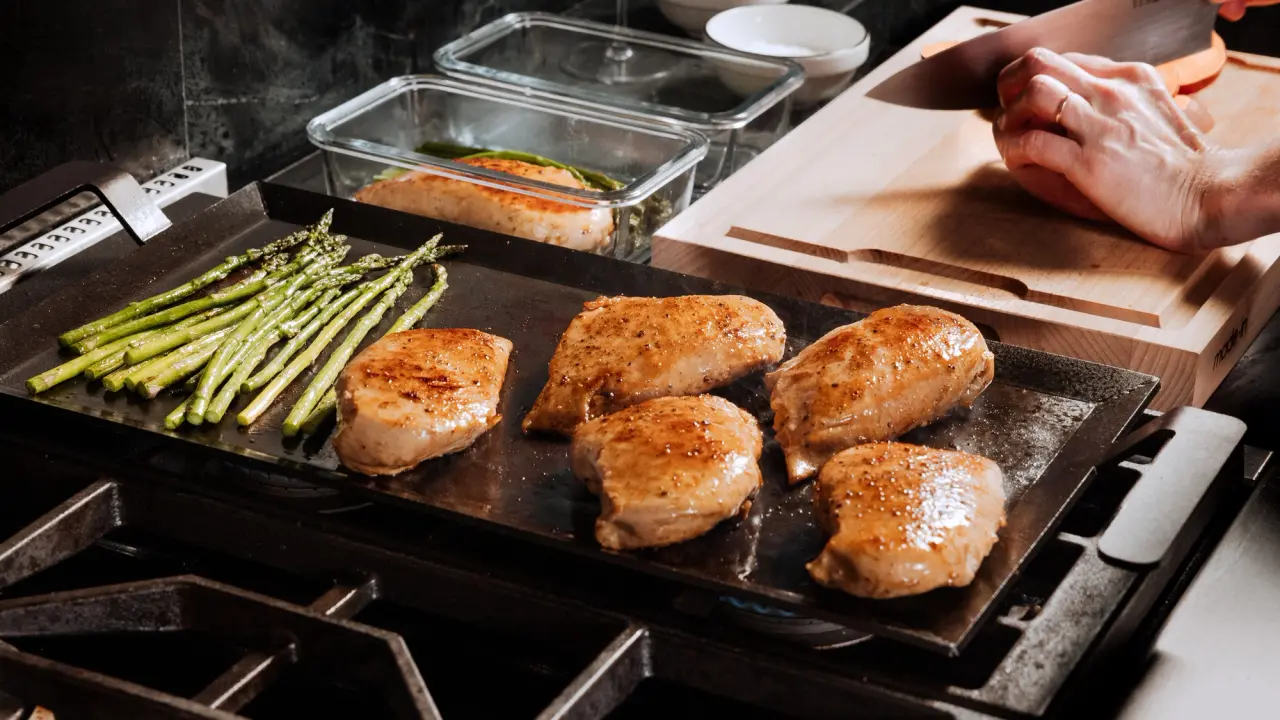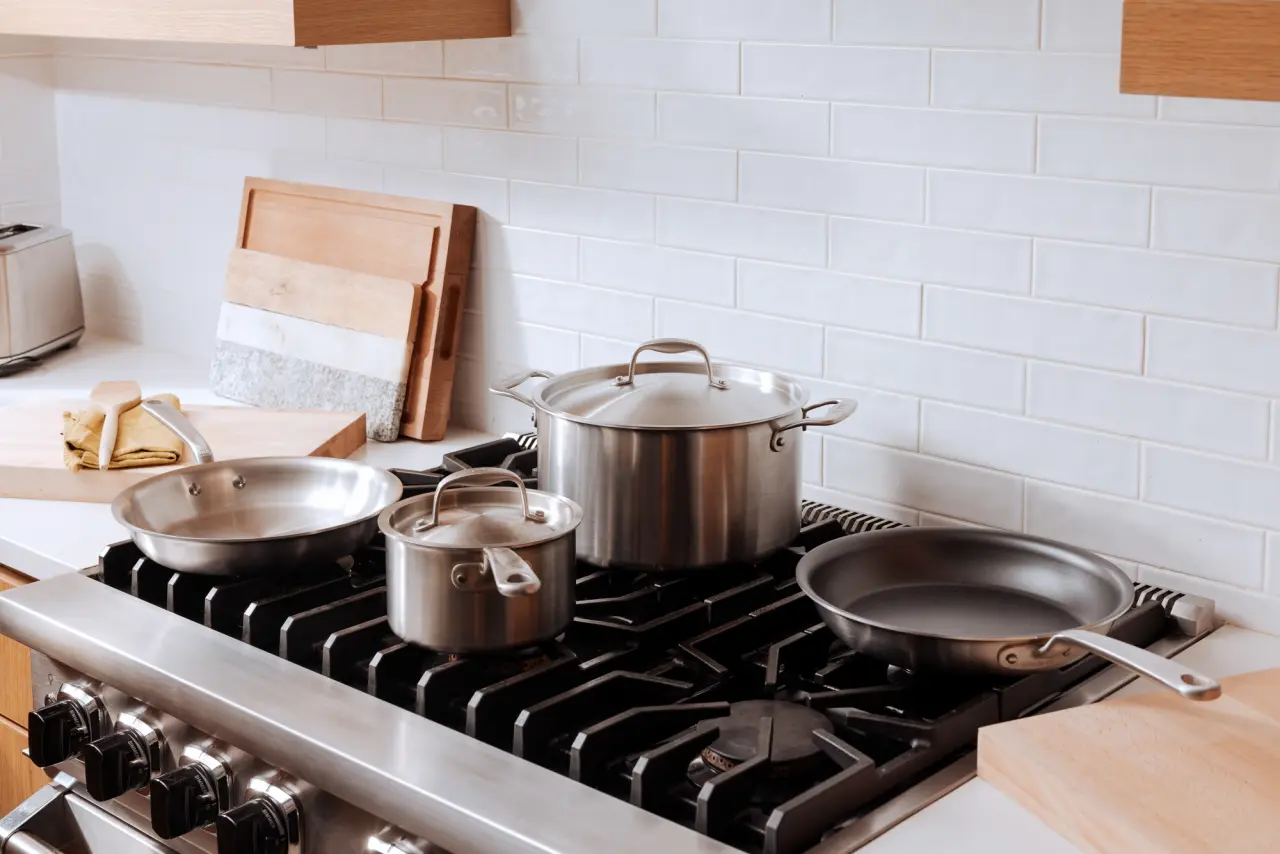Even if you don’t consider yourself a baker, a high-quality Baking Dish is an essential kitchen tool that will quickly become your go-to for sweet and savory dishes alike. Beloved by professional and home cooks everywhere, a Baking Dish is typically a square, rectangular, or oval cooking vessel made of a material that distributes heat evenly–like glass, porcelain, or ceramic.
Unlike some oven-safe Frying Pans, most Baking Dishes can withstand extreme oven temperatures up to 650F, and they provide more depth so that nothing bubbles over in the oven and makes a mess. Most importantly, when properly cared for, a well-made baking dish can last for decades. Here’s all you need to know about Baking Dishes before choosing one for yourself.
What Exactly Is Considered a Baking Dish?
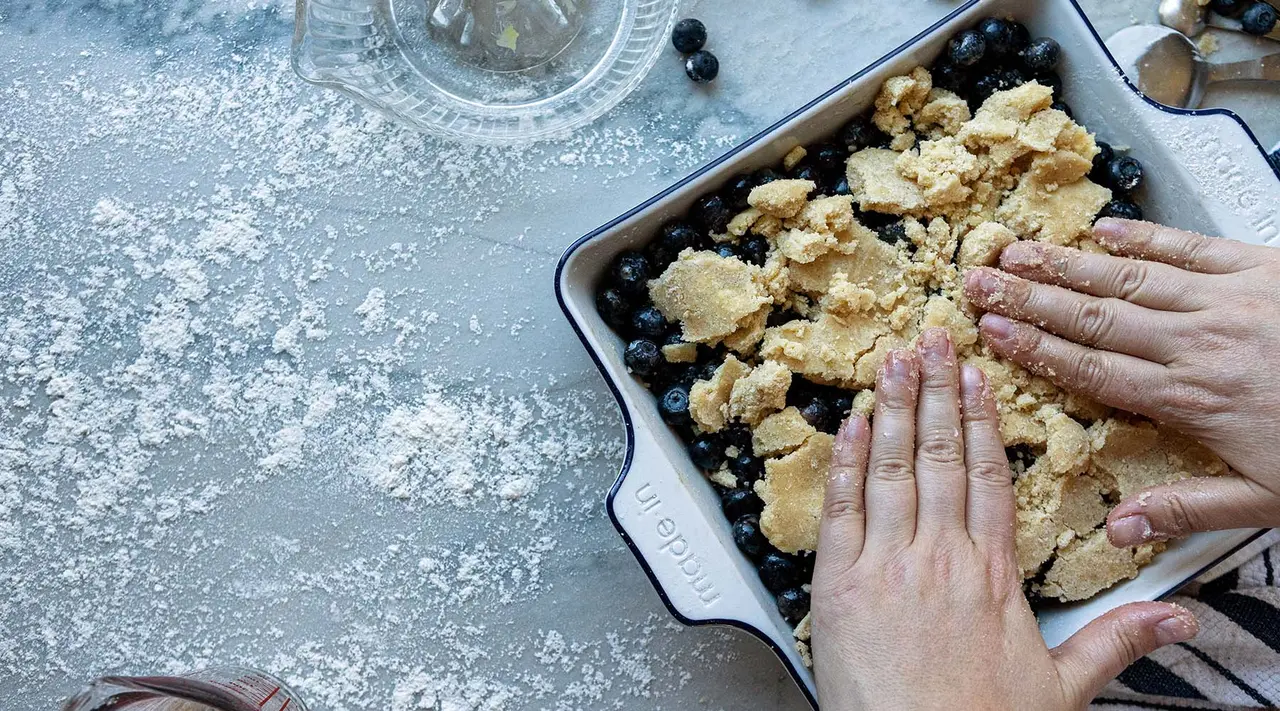
Baking Dishes can be a unique statement piece and are often passed down from generation to generation. They come in three main shapes—the rectangular 9x 13 dish, the square 8x 8 dish, and oval baking dishes that typically hold around 2.5 quarts. Unlike Sheet Pans, the Baking Dish has high sides for containing batter or layered meals like lasagna.
There are exceptions to these shapes, including individual-portion ramekins and souffle dishes. Most Baking Dishes are microwave and dishwasher safe, making reheating leftovers and clean-up a breeze.
The most common materials for Baking Dishes are glass, ceramic, or porcelain, and each has its own pros and cons.
Glassware is the most fragile of the three types of baking dishes, prone to thermal shock—a reaction that occurs when a dish is quickly moved from hot to cold or vice versa. It’s important to never place a still-hot glass pan in the fridge or bake a glass dish directly from the freezer to avoid shattering. The plus side of glass is that it offers the chef a way to see the sides and bottom of the dish as it bakes.
Ceramic or stoneware is also prone to thermal shock, but it can withstand higher oven temperatures than glass and often comes in solid colors like white, blue, or yellow.
Porcelain Bakeware is the most aesthetically pleasing, as well as the toughest. It can withstand oven temperatures up to 650F, won’t warp or shatter under thermal shock, and is a non-porous material that is naturally non stick. It’s these qualities that made Porcelain a natural choice for our Bakeware collection.
What are Baking Dishes Used for?
Thanks to their depth and high sides, Baking Dishes are ideal for large or layered meals. Whether sweet or savory, your Baking Dish can get the job done by thoroughly and equally distributing heat, even to the very center of the dish. They are commonly used during the holidays for casseroles or for thick bakes like lasagna.
Oval Baking Dishes are especially great for cooking savory dishes, like gratins or baked eggs, as the cornerless dishes will help you get every last bite on your plate. They’re also an ideal shape for baked pasta dishes like mac and cheese.
What’s the Difference Between a Baking Dish vs. Baking Pan?
The key difference between a Baking Dish and a baking pan comes down to the material each cooking vessel is made of. Baking Dishes—those made of porcelain, glass, or ceramic—are slow to heat and don’t provide a lot of browning.
Baking pans, on the other hand, are made of metal or tin and conduct heat quicker than baking dishes. Baking Dishes can withstand extreme oven temperatures, while baking pans may warp under high heat. Using a Baking Dish will ensure crisp sides and a gooey center, with no uneven cooking spots.
Another key difference between baking pans and Dishes is their different shapes and sizes. While Baking Dishes usually come in standard sizes like 9x13 or 8x8 with 2”-high sides, baking pans generally come in a wider range of options including bundt pans, round pans, and muffin tins.
What Is the Best Baking Dish?
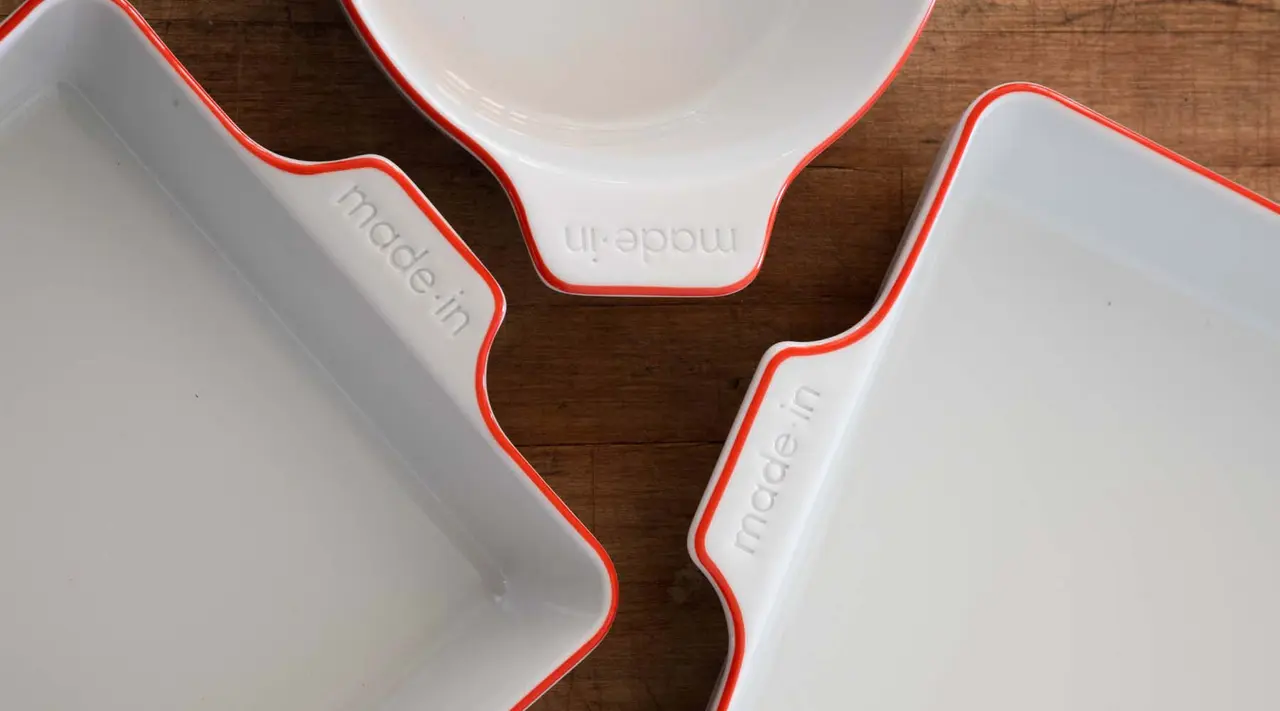
At Made In, we prefer Porcelain Baking Dishes because they’re non-porous and naturally non stick. Our Porcelain Baking Dishes are both fridge and freezer safe, plus, they can withstand oven temperatures up to 650F and can even go from freezer to oven without cracking. They’re also dishwasher safe, although their smooth, naturally non stick surfaces are easy to clean.
We also believe that porcelain makes an exceptionally aesthetically pleasing addition to any table. We offer a variety of styles, from undecorated white to colorful designs made in partnership with Chef Nancy Silverton. Each eye-catching piece is a joy to bake in and will make you even more proud to show off your creations.
Ready to Bake?
You can purchase our French Porcelain Bakeware individually or in a set, featuring the rectangle, square and oval shapes. The recipe for this porcelain is over two centuries old and is crafted in the Loire Valley in France. It’s durable, elegant, and designed to last for generations. Try one of our favorite baking recipes to start making memories today.
